Share this post!
Condo board elections take a lot of thought and consideration to ensure the board of directors is productive and effective. Finding great candidates for the role of a board member can be challenging. A board member must have a balance of honesty, experience and a sense of selflessness. This ensures the board is managed fairly. Here we take a look at what you need to know about condo board elections and condo board’s duties and responsibilities.
What is the Role of a Condo Board?
All condos have a board of directors who represent the owners in the building. Their job is to help manage the condo corporation and make decisions that ensure the building and condo finances are run with the greater good in mind. They are also there to help protect tenants and their rights. The board is ruled and enforced under the Condo Act of Ontario and the condo’s own declaration, by-laws, and rules. A well-managed condo will ensure that the rules and declarations are consistently applied with a board of directors who work with the condo corporation to ensure the enforcement.
Who Can be Elected as a Condo Director?
The qualifications to be a director according to the Condo Act of Ontario are very basic. Directors must:
- Be 18 years or older
- Not be in bankruptcy
- Not have a lien registered against them that has not been discharged 90 days prior to the elections
While these are the basic terms laid down by the Condo Act, each condo board has their own by-laws and terms for those seeking election. It is always desirable to look for people who are honest, organized and have a willingness to commit their time to the board. Some examples of common by-laws individual condo boards might pass include:
- Only owners and/or tenants are allowed to be elected to the board
- Owners on the board must live in the condo, not just be landlords
- Directors can’t be employed by the condo corporation
- Only one person from a single-family or sharing a unit can be elected
The goal is to ensure each board member doesn’t use their position for their own gain, and represent a monopoly so to speak when it comes to votes. The challenge can actually be finding suitable people who want to be on the board, as it does take commitment and time. If the by-laws are too restrictive you might find you have trouble finding candidates interested in taking on the role.
How are People Elected to the Condo Board?
Condo boards need at least three directors to ensure boards don’t encounter stalemates when voting on condo decisions. Each condo declaration will have its own specified number of directors and each member can sit on the board for no more than three years. To ensure an experienced member sits on the condo board at all times, condos try to set terms that keep a good rotation of directors going. The condo runs more smoothly when at least one person is up to date on the condo business.
The terms coincide with the Annual General Meeting (AGM) of all owners run by the condo corporation. Usually there is at least one director whose term is ending at each meeting, allowing residents to run for a seat if they are interested.
During the condo board elections, condominium by-laws and rules determine who gets elected. If interested in candidacy, residents should toss their hats in the ring before the meeting. This would give candidates time to properly introduce themselves to residents and provide information about their candidacy to the condo corporation. This information should also be included in the communication sent to residents before the meeting. This will give residents the time to learn about the candidates and decide who to vote for.
Before the vote, the candidates have time to speak at the election meeting to allow residents to learn more about them. Condo residents elect the directors, and the fellow directors, in turn, elect board presidents and secretaries.
Condo Board Elections by Default

Condo board elections provide a democratic way for people to join the board. Unfortunately, finding people who want to become candidates can be challenging. Many people can’t spare the time to attend meetings or do the work required by board members. Because of this, it is not uncommon to have just one candidate when an opening is available. When this happens, the result is election by default. The candidate isn’t elected but instead acclaimed. Many poorly managed, or dishonest boards continue to maintain power because of a lack of candidates. In these cases, the condo suffers, and tenants and owners are forced to live with less than perfect management.
What are Candidate and Director Disclosures?
Candidates must make certain disclosures at the time of their candidacy, when elected and during their time on the board, including:
- If they or a member of their family or living with them in their unit are in active legal proceedings with the condo corporation
- Any convictions of an offense under the Condominium Act, 1998 (the Act) or the regulations within the past 10 years
- Any interests in a contract or transaction that the corporation is a party to, or in which the developer or their affiliate is a party
- Being a unit owner in the corporation and having common expense contributions in arrears for 60 days or more
- Not being an owner or an occupier of a unit in the corporation
There will also be disclosures specific to the condominium corporation’s by-laws.
Condo Directors’ Responsibilities
The reason it can be hard to find candidates in time for condo board elections is that directors have a long list of responsibilities to fulfill including:
- Maintaining the fiscal health of the corporation including setting and keeping a budget, ensuring the condo management company is collecting fees from owners, paying invoices and maintaining records.
- Keeping information certificates up to date.
- Ensuring the condo has the proper insurance.
- Making sure a fair tendering process is followed out for all work required for the condo.
- Hiring and overseeing a property management company to provide day to day work to maintain and manage the condo.
- Human resource duties to ensure those working for the condo are treated fairly, are qualified to perform their duties and continue to perform their duties to a high standard.
- Maintaining reserve funds and ensuring the reserve fund study is performed every three years.
- Sharing reserve fund studies results with condo owners and residents.
- Holding annual general meetings.
- Addressing residents’ legitimate complaints to ensure tenants’ rights are respected and their needs are met without bias.
- Communicating with residents and owners to keep them informed of important condo news such as scheduled maintenance that might affect their enjoyment of their units.
Everything the condo directors do should be focused on maintaining the condo complex to help increase value while ensuring everyone living there is treated with respect.
What if a Director is not Performing Properly?
Directors can stay in term for up to three years. But you can remove the director if they aren’t performing their duties. In this case, you would call a meeting of owners to vote to have them removed. Owners can vote in person or by proxy and the vote removal must be by a majority. The same process for election is then followed to replace the director if removed.
Condo board elections are important. They ensure fair management, operation, and board of directors’ commitment to the corporation. They also avoid financial problems and issues that can reduce the value of the condo’s units. Speak with someone from CPO Management Inc. if you would like more information about condo boards and management.
